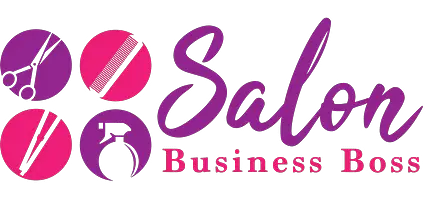As a salon owner, you have a lot of responsibilities. You must balance the needs of the client with your bottom line. You have to commit to purchasing the best products and the best tools. You must make sure that you comply with government rules and safety regulations. But one of the biggest things you are responsible for is hiring great stylists. Your stylists are the lifeblood of your business. They bring customers in and keep them coming back. They are the talent and ultimately you depend on them. Because of their great importance, you must ensure that you hire the right people. The right stylists for your salon will be polite and offer the best customer service. To make sure that they follow the highest standards, make sure you spend time observing them. From observation, you’ll be able to better gauge their salon etiquette.
The 7 things that your stylists should never do are:
- Take personal calls in customer serving areas
- Eat at their workstations
- Take excessive breaks while serving a customer
- Ignore customer concerns and complaints
- Argue with a customer
- Refuse to explain billing
- Share workplace grievances on social media
If you catch your stylists doing any of the things listed above, you have a problem. Without proper etiquette, your stylists can be a liability. To learn more about how these violations impact your salon, keep reading.
Take Personal Calls in Customer Serving Areas

When the customer is in the salon, they are the priority. Making sure they feel comfortable and confident while receiving service at your salon is key. One of the ways that staff can demonstrate that the customer is not the main priority, is by taking personal calls in customer serving areas. Personal calls almost are never appropriate in a client-serving business. One of the major issues with taking personal calls in a salon is that the call stops being personal as soon as you pick up the phone.
Salons have a layout where stylists are all clustered in the main area. While there are spaces for shampooing and other services that may be more private, overall, someone is likely to hear any conversation you have in a salon. As the call is personal, the subject could offend customers or staff.
In addition to offending customers or staff, personal calls could also distract stylists from their work. In a salon, time is a precious commodity. The more efficient stylists are with completing their services, the more money they can make. It also reflects well on you as a business owner. The more money your stylists make, the more money and advertisement for you. Besides the money aspect, there is the customer care aspect. Customers don’t want to spend countless hours in the salon. They want to be able to come in, get their service, and get on with their days. Clients may be coming in during lunch breaks or on weekends when they are tight on time. To respect your clients’ time, stylists must give them their full attention.
Positive things happen when your stylists give the clients their full attention. One is that the client and the stylist can build rapport. Clients don’t just come to the salon because the stylist is great, they also come because they feel comfortable with the stylist. Another thing that can happen is that stylists will improve in their ability to recognize their clients’ styles. For example, they’ll know just how to provide services tailored to the client. Overall, if your stylists want to have proper etiquette, they should refrain from taking personal calls in client-serving areas.
Eat at Their Workstations
Eating in a client-serving area is something your stylists should never do. Not only is it inappropriate to eat while serving a customer. It is also inappropriate to eat in a space designated for customers. Stylists who are focused on demonstrating salon etiquette never eat at their workstations. Here are some of the negative things that can happen if you allow stylists to eat at their workstations:
- They can get food items into styling products
- They will be less likely to keep a clean workstation
- The clients will feel uncomfortable
- Other stylists may copy this behavior
- Clients will be susceptible to having their stylists’ food fall on them
Another negative impact is how eating at the workstation can impact service time. If stylists are focused on eating, they cannot be completely focused on client service. The time it takes them to complete a style will be extended. In addition, they aren’t likely to do their best work if they’re multitasking. Finally, the act of eating in a client-serving space makes the salon look unprofessional. Something so small can have a big impact on your salon’s reputation. To make sure your stylists follow the highest standards, don’t allow them to eat at their workstations.
Take Excessive Breaks While Serving a Customer

Time is of the essence in a salon. The way stylists manage their time can make or break a salon. I like to know how long my service will take. This helps me to better plan my day around my salon visit. One thing that can greatly impact my styling time is if my stylist is taking excessive breaks while styling me. You know what I mean. We’ve all paid for a service to get done and then realized that it was taking a bit too long to get completed. Then, upon inspection, you find out that the person you hired is taking excessive lunches and smoke breaks. Not only is this bad for clients, but it’s also bad for the bottom line. If you want your stylists to offer the best customer service, make sure you pay attention to how often they take breaks. While it is important to be accommodating to your staff, it is also important to respect your clients’ time.
Ignore Customer Concerns and Complaints
I’ve seen so many memes highlighting the struggles of women in salons. My favorites are the ones that show a picture of what the client wanted and what they got. I’ve had that experience many times. I’ve planned to get my hair styled a specific way. Only to find out at the end of the appointment that I got something different. Women often highlight how difficult it is to express a complaint or concern after getting your hair styled. Because it is so difficult to bring it up at all, your stylists must take complaints seriously. Good stylist etiquette calls for a stylist to first apologize for not fulfilling the clients’ desires. Next, a conversation should be had about how to make it better. Although this can be difficult for stylists, it is an important step in offering stellar customer service.
Argue With a Customer
Arguing with a customer is forbidden in customer service. This is why we often hear the phrase, “the customer is always right”. Stylists should never get into arguments with customers about any services rendered, scheduling, or anything for that matter. As a salon owner, you may be able to step in and address most customer concerns. However, it is ultimately up to the stylists to make sure they address a client’s concern without arguing.
Not only does arguing prevent them from solving the problem, but it also can affect your salon’s reputation. When a client is upset, the best thing to do is to let them vent. Afterward, the stylist can attempt to find a way to make things right. Sometimes this isn’t possible. Even if it isn’t the stylist shouldn’t begin arguing. This is one of the most important aspects of salon etiquette.
Check out how to hire the best employees HERE.
Refuse to Explain Billing

Salon services are a luxury. Many women and some men budget for their salon services monthly. Because of the luxury connotation of salon services, your stylists must be clear about billing. I’ve been to salons where I was simply told a price. I didn’t get a detailed receipt, and no one explained where the price came from. I was just expected to pay for it. In those situations, I felt like I was being taken advantage of. The price may have been low or high. But that wasn’t the point. What was important to me was feeling like I understood what I paid for. Great customer service requires that stylists are transparent about their billing.
Share Workplace Grievances on Social Media
A general rule for all employees is to never share workplace grievances on social media. Presenting private information on social media about your coworkers, boss, or clients is probably one of the worst things you can do. For one, it is a violation of the trust you have with those you interact with within the workplace. Second, it is an ineffective way to solve problems you may have with those people.
In a salon, stylists are privy to a lot of client information. This is because of the rapport and comfort that clients tend to share with their stylists. If that trust is violated, then it will be difficult to regain it. It will also be extremely damaging to the salon as a whole. People won’t want to come if they don’t feel that their private information is safe. Be sure that you have an open dialogue with your stylists so they don’t feel the need to go to social media with their grievances.
So, there it is. The 7 things your stylists should never do. Salon etiquette is an often overlooked aspect of running a salon business. However, good customer service keeps your clients coming back and encourages others to stop by.
Related Questions

How can I be sure that I’m hiring the right stylists?
You can be sure that you are hiring the right stylists by conducting thorough interviews. Include a demonstration of skills and questions about how they interact with clients. This will help you figure out if they are a great fit for your salon.
Looking to start your own Salon? Get the documents you need to get organized and funded here.
Please note: This blog post is for educational purposes only and does not constitute legal advice. Please consult a legal expert to address your specific needs.

About the author. Entrepreneur and Salon Business Fan.
Hi! I am Shawn and I am a happy individual who happens to be an entrepreneur. I have owned several types of businesses in my life from a coffee shop to an import and export business to an online review business plus a few more and now I create online salon business resources for those interested in starting new ventures. It’s demanding work but I love it. I do it for those passionate about their business and their goals. That’s why when I meet a salon business owner, I see myself. I know how hard the struggle is to retain clients, find good employees and keep the business growing all while trying to stay competitive.
That’s why I created Salon Business Boss: I want to help salon business owners like you build a thriving business that brings you endless joy and supports your ideal lifestyle.

